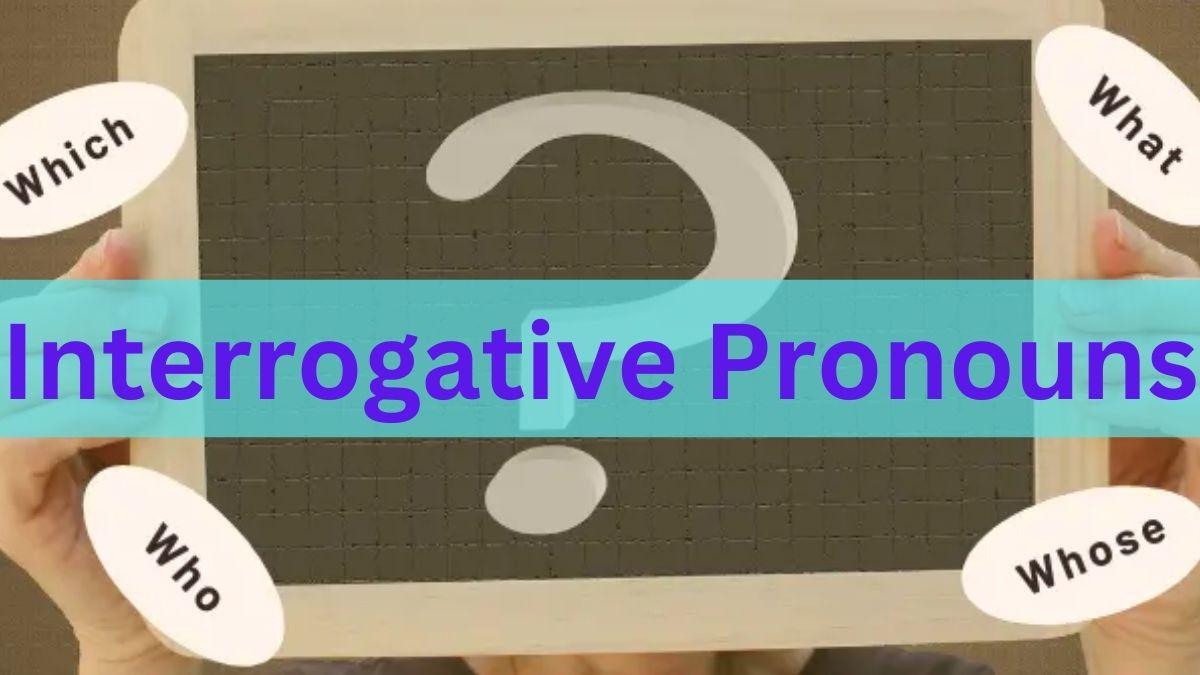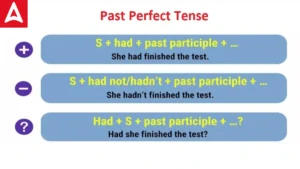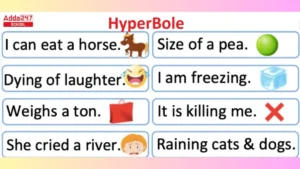An interrogative pronoun is a pronoun that simplifies the process of asking questions. Only five interrogative pronouns exist. Each one serves to pose a highly particular query or implied query. Certain pronouns, like “who” and “whom,” exclusively pertain to individuals. Others can refer to objects or individuals.
Interrogative Pronoun
Who is your best friend? What is your preferred cuisine? Which of the rainbow’s colours is your favourite? One last query: What exactly is a pronoun? If you are an expert in grammar, you already know that we use pronouns in place of nouns. Many of our sentences, including queries, contain pronouns.
An interrogative pronoun is a sort of pronoun that is always seeking responses. You only need to continue reading if any of these queries leave you wondering what an interrogative pronoun is.
What is an Interrogative Pronoun?
A pronoun used to ask a question is called an interrogative pronoun. Who are you, for instance, uses the pronoun who as an interrogative. Interrogative pronouns take the place of nouns in sentences like most other pronouns do. Interrogative pronouns usually take the place of whatever or whoever the response to the query is. For instance:
- What is a pineapple? A pineapple is a fruit.
- Who built this shed? Carl built this shed.
An interrogative pronoun is typically the first word in a phrase that ends with a question mark. A sentence cannot conclude with a question mark if it uses an interrogative pronoun to pose an indirect query:
- I wonder who will come tomorrow.
- She asked us what we wanted for lunch.
Interrogative Pronoun Definition
Although the term “interrogative” is not specifically defined, the Cambridge Dictionary describes it as “a phrase or sentence used when asking a question.” The word “interrogative” is defined by the Merriam-Webster Dictionary as “a word (such as who, what, or which) used in asking questions.” A pronoun that is used to replace a person or an object when asking a question is known as an interrogative pronoun.
Interrogative Pronoun Examples
Let us see the examples of these special pronouns that form an important part of the English grammar.
What – Used to ask questions about people or objects. Examples:
- What do you want for dinner?
- I wonder what we’re doing tomorrow.
- What is your friend’s name?
- What animal has horns?
Who – Used to ask questions about people. Examples:
- Who is that?
- Who was driving the car?
- I’m wondering who will be at the party.
- Who is going to take out the trash?
Whose – Used to ask questions about people or objects, always related to possession. Examples:
- Whose sweater is this?
- Whose parents are those?
- I wonder whose dog knocked our garbage can over.
- Whose phone is that?
Which – Used to ask questions about people or objects. Examples:
- Which color do you prefer?
- Which of these ladies is your mother?
- She asked which train to take.
- Which seat would you like?
Whom – This interrogative pronoun is rarely seen these days, but when it shows up, it is used to ask questions about people. Examples:
- Whom did you speak to?
- Whom do you prefer to vote for?
- You should ask whom to call.
- Whom do you live with?
Interrogative Pronoun: How To Use?
Interrogative pronouns are frequently the first word in questions:
- Who was that?
- What is her favorite color?
Later in a sentence, though, it is possible to use an interrogative pronoun:
- You gave the money to whom?
- Excuse me? You used what to make this ice cream?
Although an interrogative pronoun may be used in either the singular or the plural, its look will not alter. When used in a sentence, it must still adhere to subject-verb agreement, though
- What is your phone number?
- What are the missing letters?
To determine whether you need a singular or plural verb in an interrogative question, it can be useful to turn the sentence around:
- Who (is/are) these guys? These guys (is/are) who?
Interrogative Pronoun: Key Points
Some of the key points regarding these special type of pronouns is provided hereunder.
- Interrogative pronouns are pronouns that are used to ask about an unidentified noun.
- The five pronouns used in interrogative sentences are Who, Whom, Which, What, and Whose.
- Interrogative pronouns and interrogative adjectives should not be confused.
- These interrogative adverbs are when, why, where, and how.
| Check Related Articles | ||
| Relative Pronouns | Personal Pronouns | Possessive Pronoun |
| Reflexive Pronoun | Object Pronouns | Abstract Nouns |
| Common Nouns | Collective Nouns | Compound Nouns |











 Vocabulary Words with Meaning and Senten...
Vocabulary Words with Meaning and Senten...
 Past Perfect Tense: Definition, Formula,...
Past Perfect Tense: Definition, Formula,...
 Hyperbole- Explanation, Definition, Exam...
Hyperbole- Explanation, Definition, Exam...









